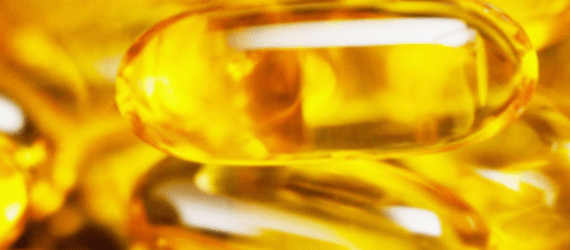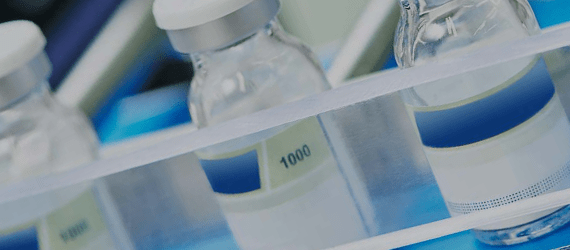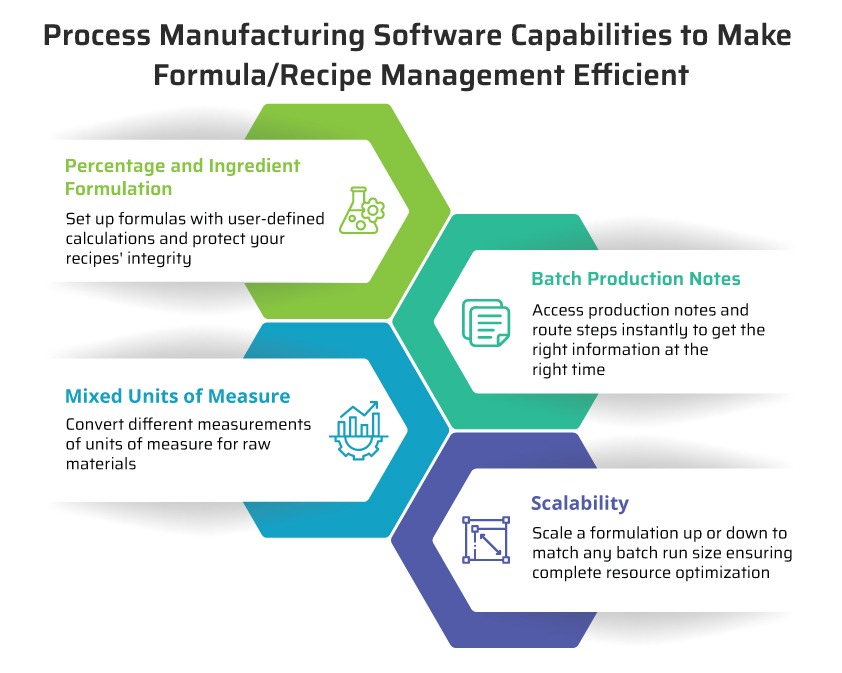What is Process Manufacturing?
EXAMPLES OF PROCESS MANUFACTURING INDUSTRIES

Food Manufacturers
The food industry is made up of several segments, including bakery, beverage, dairy, dressings & sauces, flavors & additives, seasonings, and prepared foods. All these industry segments are subject to strict regulatory mandates that require the identification and labeling of ingredients (FDA nutritional fact panels), meeting label claims, as well as tracking and tracing of all raw materials and finished goods in a production job. In addition to food safety concerns, food manufacturers must properly manage product expiration dates, shelf lives, various quality grades, by-products, and co-products.

Chemical Manufacturers
The chemical industry is made up of several segments, including paints and coatings, adhesives and sealants, personal care and cosmetics, fragrances, and other specialty chemicals. All these industry segments are all subject to strict regulatory mandates that require the identification and labeling of products (GHS / SDS) that pose a health and safety risk due to exposure, inhalation, and ingestion, as well as being explosive and flammable. In addition to hazmat concerns, chemical manufacturers must properly manage product variable characteristics, such as strength, density, and active vs filler ingredients.

Nutraceuticals Manufacturers
The nutraceutical industry is made up of several segments, including dietary and sports supplements, vitamins and minerals, and herbal remedies. All these industry segments are all subject to strict regulatory mandates that require the identification and labeling of products (FDA supplemental panels), meeting label claims, as well as tracking and tracing of all raw materials and finished goods in a production job. Nutra manufacturers must properly manage all product types, including capsules, soft gels, and tablets. They must also capture and report on all manufacturing steps from formulation through production.

Pharmaceutical Manufacturers
The life sciences industry is made up of several segments, including generic / OTC drugs enzymes and specialty biologics. All these industry segments are subject to strict regulatory mandates that require the identification and labeling of products, meeting label claims, as well as the tracking and tracing of all raw materials and finished goods in a production job. In addition to effectively managing product types, life sciences manufacturers must provide electronic signatures and audit trail reports to CGMP auditors. In addition, they must validate their processes.
A FEW DIFFERENCES BETWEEN PROCESS MANUFACTURING
VS DISCRETE MANUFACTURING
INDUSTRY CHALLENGES THAT A PROCESS MANUFACTURING SOFTWARE CAN SOLVE

Batch Consistency
Product Recalls


Ingredient Management
Regulatory and Compliance Management

FEATURES OF A PROCESS MANUFACTURING SOFTWARE

A FEW ADVANTAGES OF PROCESS MANUFACTURING SPECIFIC SOFTWARE

Units of Measure

Formulation

Lot Traceability and Recall

Expiration Date

Quality
HOW TO CHOOSE THE RIGHT SYSTEM FOR YOUR PROCESS
MANUFACTURING BUSINESS?
BatchMaster Manufacturing Software for Process Manufacturers
With a software architecture built from the ground up for process manufacturers, we recommend you learn more about our add-on process manufacturing application for QuickBooks, Sage 100 & 300, Microsoft Dynamics GP and SAP Business One, or our end-to-end, industry-specific ERP solution.





